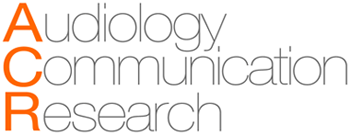Purpose
Assess the receptive vocabulary in postlingual hearing impaired patients, regarding the influence of biological and sociocultural factors.
Methods
We conducted a cross-sectional study, with 78 hearing impaired individuals diagnosed with sensorineural, symetric, postlingual hearing loss; and age between 12 and 70 years (mean=51.3±21.6; median=53), who speak brazilian portuguese as first language. We raised data about sociocultural status, hearing loss and hearing aids characteristics. The “Teste de Vocabulário por figura USP–Tvfusp92o”, in portuguese, was used to evaluate the receptive vocabulary.
Results
The hearing impaired individuals mean score in the recepetive vocabulary test was 82.9 (SD=26.0), showing significant correlaton with the educational level, reading habits and the use of a hearing aid. When compared with the test normative data, 51,3% of the hearing impaired scored as having poor or very-poor receptive vocabulary.
Conclusion
Sociocultural factors, as educational level and reading habit, and the use of a hearing aid have a positive influence on receptive vocabulary. By other side, biological factors as age and hearing loss characteristics did not demonstrate this influence. Mostly of hearing impaired subjects had worst scores in the receptive vocabulary test when compared to normal-hearing individuals, from seven to ten years old.
Vocabulary; Language tests; Language; Hearing loss; Deafness; Hearing aids
